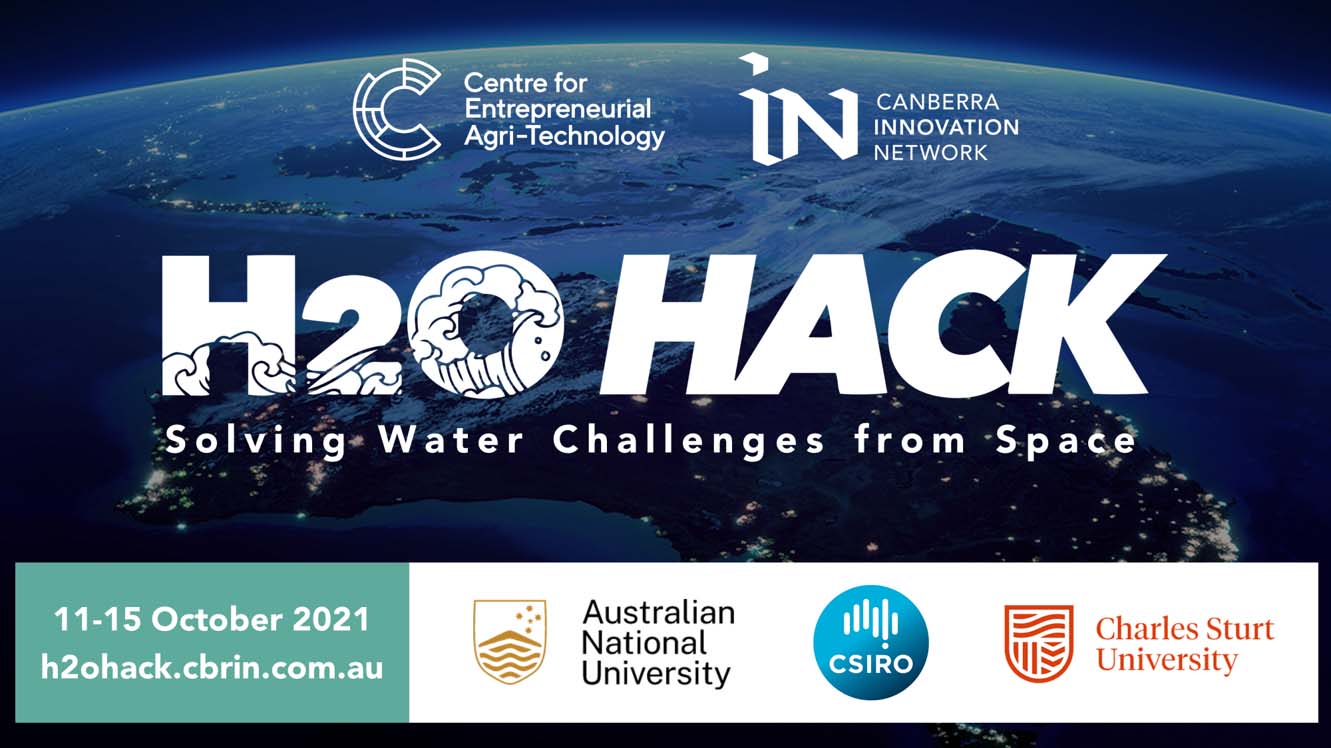H2O Hack: Solving Water Challenges from Space
The 2021 H2O Hack is offering the opportunity for researchers, entrepreneurs and innovators to make a difference, solve real life water problems across Australia – and win prizes!
Content navigation
RegisterDescription

The 2021 H2O Hack is offering the opportunity for researchers, entrepreneurs and innovators to make a difference, solve real life water problems across Australia – and win prizes!
Are you or someone you know working on a solution that could solve these problems:
- Explore how space-based technologies can be used to quantify water management challenges across Australia
- Create a space-technology based idea which improves water use efficiency in Australia’s agriculture, fisheries and forestry industries and has potential to be commercialised
- Create a forum for industry, academia and government representatives to exchange perspectives and collaborate
- Enable research to be applied in novel ways to create real-world impacts
What’s in it for you:
- FREE to participate in
- Up to $20,000 cash in prize money!
- You will have the opportunity to be mentored by experts from a range of different background and be inspired from a collection pre-recorded videos from long list well-known speakers
- Highly ranked teams will also have the opportunity to access the Idea2Impact workshop program and coworking at CBRIN, attend CEAT-mediated workshops to develop linkages with researchers and industry, and participate in the CEAT Innovation Hub
Who can sign up:
- You must be 18 years of age or over, and be part of a team of between 3-5 people
- This event will appeal to you if you are interested in water, space technology, agriculture technology and up for an exciting challenge
The virtual hackathon will be held from 11- 15 October, 2021, full schedule details are available on the event website
Register for the H2O Hack here
Brought to you by the Centre for Entrepreneurial Agri-Technology (CEAT), ANU Institute of Water Futures, and Canberra Innovation Network (CBRIN), in collaboration with the ANU Institute for Space, CSIRO and Charles Sturt University.
Location
Online
